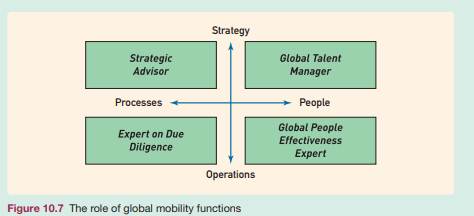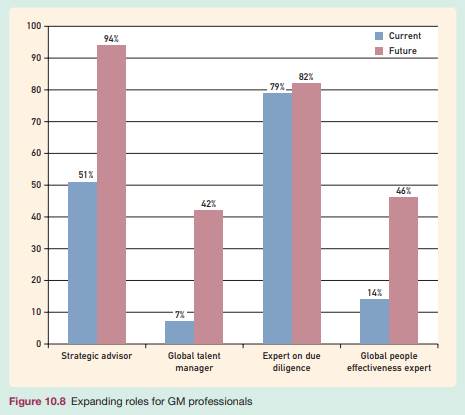The twenty-first century is characterised by a dramatic increase in the speed, scale and dynamics of competition between multinational firms. The work of the global mobility function supports individuals and organisations to be as effective and efficient as they can in their search for worldwide competitive advantage. Because corporations face differing contextual pressures, have varying organisational structures and compete in diverse ways, the operating model of the global mobility function, its purpose and value is highly distinct in multinationals. The RES Forum facilitates the networking of its 600+ global mobility (GM) expert members from more than 350 MNCs. In 2014 and 2015 it explored how the role of the global mobility department was seen by the heads and senior specialists in their member organisations.
While there was some large degree of inconsistency with respect to the vision of where the global mobility function should be in terms of its value proposition, four components stood out:
1 Expert on Due Diligence: Being a GM expert with respect to administrative and process knowledge to enable faultless due diligence and programme compliance. This large field may also include managing the internal and external service delivery process and quality. One member commented: ‘Due Diligence . . . has to be done properly right from the start. Cross-border taxation, immigration, employment legislation, host country practices, security, medical requirements, etc.’.
2 Global People Effectiveness Expert: Running a centre of expertise that understands the mobility drivers of individuals and supports them in their international sojourns to enable them to be as effective as possible. This would include sophisticated pre-departure selection, preparation, foreign ‘on-boarding’ and adjustment, performance management as well as repatriation issues. One GM director explained that this would entail: ‘workforce planning; make sure that the organization chooses the right (number of) people, for the right reasons, to work abroad’.
3 Global Talent Manager: Link resourcing, development and leadership ideas in global mobility work to create
seamless, worldwide integrated talent management. A further director added: ‘Vision that the mobility function is part of the business talent DNA, rather than mobility.’
4 Strategic Advisor: Having a broader strategic remit that would lead to the function of strategic business partner/advisor on global mobility issues. This would need the in-depth understanding of the business, its global operations, localisation and security issues as well as the link to leadership and successor issues. Global mobility metrics, analytics and return on investment (ROI) considerations would be part of the strategic considerations. A GM director explained that the function should be a ‘Critical strategic tool to enable the delivery of the international business development plan’. A further RES Forum member added that the GM function should be ‘responsible for analytics and reporting on value added data regards the mobile work force – ROI etc.’. The data led Dickmann (2014) to develop a framework for the roles of Global Mobility departments that has many parallels with the work of Ulrich (1998). It is depicted in Figure 10.7. One year later, the RES Forum conducted a follow-up survey in which it investigated how its members viewed the current role of the GM departments in their MNCs and how they would see it develop in the future. The data showed that currently GM professionals see themselves predominantly in the due diligence expert role, followed by that of strategic advisor.
The talent management and global people effectiveness expert roles were comparatively less important. In future, they were working towards a much stronger emphasis on strategic advice. The due diligence role is likely to remain important. In addition, the two other roles of talent manager and global people effectiveness expert are likely to become much more important in the future (see Figure 10.8). It has to be remarked that many GM functions are ‘not there, yet’. For instance, the use of HR/GM technology remains unsophisticated in many organisations (Dickmann, 2014). The interface with talent management


specialists is not well defined and there are currently some role overlaps – both within these MNCs and between the different parts of the framework (Dickmann, 2015). The case raises a raft of issues and questions. Amongst those are:
1 What role(s) do you think is most appreciated by international assignees? Why?
2 What roles may senior managers value most?
3 How can GM departments achieve to become more accepted/work more like strategic advisors?
4 How can GM professionals become better global people effectiveness experts? What might this work entail?
5 Given the parallels with the original Ulrich model – what barriers and disadvantages may the envisaged shift have?

